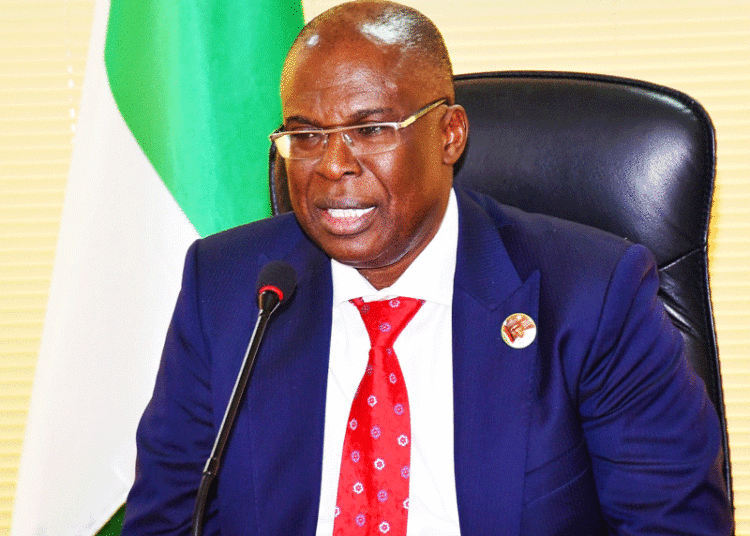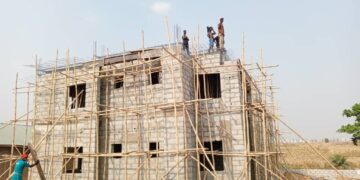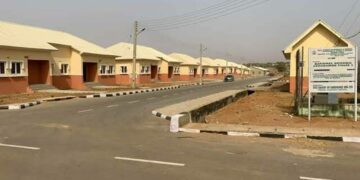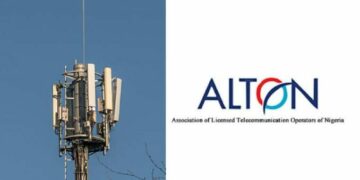Nigeria has, over the years, experienced lull in oil and gas sector activities leading to her inability to meet targeted production and reserves.
Just recently, it was reported that the country failed to meet the 1.8 million barrels per day oil production quota set by Organisation of Petroleum Exporting Countries, OPEC, in the month of February 2022.
The country was able to achieve 1.258 million barrels a day, mb/d production, according to the Monthly Oil Market Report released by OPEC.
Nigeria missed its crude oil output target for January 2022, pumping 1.46 million barrels per day against a target of 1.683 million bpd approved by OPEC.
Condensate oil production is not part of data reported to OPEC.
The minister of State Petroleum Resources, Chief Timipre Sylva had blamed lack of investment by International Oil Companies (IOCs) for the country’s inability to meet its OPEC quota.
Chief Sylva further observed that the speed with which international oil companies and other investors were withdrawing investments in hydrocarbon exploitation contributed significantly to Nigeria’s inability to meet OPEC target.
He said: “the rate at which investments was taken away was too fast. Lack of investment in the oil and gas sector contributed to Nigeria’s inability to meet OPEC quota. We are not able to get the needed investments to develop the sector and that affected us.”
He also cited security challenges as another major factor that contributed to the lack of significant growth of the sector in the country adding that the drive towards renewable energy by climate enthusiasts has discouraged funding for the sector.
Sylva, however, called for a change of attitude, stressing that in decades to come hydrocarbon will continue to play a central role in meeting the energy needs of the world.
However, in a fresh assurance and in full confidence, Sylva, penultimate Friday said that the country would be able to meet its OPEC production quota by the end of August as the country aims to boost security in its oil industry.
Nigeria is OPEC’s largest production laggard, consistently underperforming its production quotas by a longshot since the production cut deal went into effect. According to secondary sources, Nigeria’s crude production slipped in May the last available data to 1.262 million bpd. Its May production quota under the OPEC deal was 1.753 million bpd, a shortfall of nearly half a million barrels per day
Nigeria has struggled for some time with vandalism and theft in its oil sector. Vows to clean up the industry have failed to restore Nigeria’s crude production capacity to its full potential.
“For us in Nigeria, we are at a low point. We are not able to meet our OPEC quota,” Nigerian Oil Minister Timipre Sylva told a media conference, although he stressed that soon they should be able to. “We have given ourselves just about a month to ensure that we can … we believe that by August we would see some improvement in security,” Sylva added.
Sylva also dispelled the notion that OPEC could turn on spare capacity and pump more, citing capacity concerns. “At this moment, there is little capacity that can be brought to the market.”
The perceived lack of spare capacity among many OPEC members has helped to keep oil prices high in recent months, despite lofty ambitions from the group regarding July production targets, which were set 648,000 bpd higher than their June targets and over a million bpd higher than the May targets—which they aren’t meeting either. If Nigeria did manage to meet its August production target, it would make a huge difference in the oil markets.
Eyeing Marginal Field Operations
Nigeria introduced the marginal field development programme in 1996 to help grow the country’s oil and gas production by divesting the majors of dormant discoveries and making same available to indigenous operators who are nimble enough to venture into neglected terrains.
The programme has seen Shell, Total, Agip, Chevron and others surrender fields which are then allocated to marginal field operators in bid rounds.
A corollary to the programme is the development of local content in the oil and gas industry, and it is no coincidence that the Nigerian Content Act came into force in 2010, five years after the marginal field initiative was introduced.
Among other things, the Act aims to address over 50 years of capital flight of some $380 million, 2 million job losses and less than 5 per cent in-country value addition in the oil and gas industry in Nigeria.
The marginal field development programme is a sure platform for the achievement of these ideals, and it is reassuring that Nigeria achieved 30 per cent local content in the oil and gas industry in 2017, and hopes to take this to 70 per cent by 2027.
The aspiration to increase Nigerian content will however, not materialise if the stock of marginal field operators dwindle not just because of the harsh operating environment but because of counter-productive pronouncements and actions by regulators. This refers to the revocation of the licenses of 11 marginal field operators by the defunct Department of Petroleum Resources(DPR) on 6th April 2020, because according to the regulator, the fields were not developed 15 years after allocation. The operators are Associated Oil & Gas Ltd/Dansaki Petroleum Ltd, Bayelsa Oil Co. Ltd, Bicta Energy & Management Services Ltd, Del-Sigma Petroleum Nigeria Ltd, Eurafric Energy Ltd, Goland Petroleum Ltd, Guarantee Petroleum Limited/Owena O&G Ltd, Independent Energy Limited (IEL,) Movido E&P Ltd, Sahara Energy Ltd/Africa Oil and Sogenal Ltd.
A decision of this magnitude was conveyed through email.
Apart from complaining on the mode of communication, the operators say it is not true that the fields remained idle. They point to domestic and foreign investments totaling USD278 million, resulting in the production of 232,389 barrels from approximately half of marginal fields that the DPR alleged are lying fallow.
In fact, it was said that, at the time the DPR emailed the revocation notice, some barrels of oil were being stored in flow stations and terminals waiting to be evacuated or exported. In addition, some marginal field operators were continuing to drill and test wells and construct production facilities.
The revocation could not have come at a worse time. The COVID-19 pandemic was at its peak when the DPR decided to act. As at April 11, 2020, that is five days after the revocation, the pandemic had claimed 107,781 lives and infected 1,763,578 people, of which these figures have risen exponentially.
Charging New Field Operators To Upscale Operations
Given the new hope that marginal field operations posses, Sylva, on Tuesday, June 28, charged the 57 marginal field investors who were presented with licenses to quickly develop their assets and enjoy the full benefits in the Petroleum Industry Act (PIA), which seeks to, among others, increase crude oil production, grow reserves and reduce cost of production.
The minister, who gave the charge in Abuja at the formal presentation of Petroleum Prospecting Licences to the operators by the Nigerian Upstream Petroleum Regulatory Commission (NUPRC), noted that, $2.7 billion was generated from the bid rounds conducted in 2020.
Sylva urged the awardees to take advantage of the current attractive oil prices to bring the fields into full production within a short period in line with President Muhammadu Buhari’s aspiration.
He assured the investors that the industry regulator, NUPRC, will support any aspiration for upstream development with midstream facilities integration towards maximizing the value chain.
“It is envisaged that robust collaboration between the awardees and the Commission will lead to better understanding of the challenges being encountered. Therefore, I encourage you to promptly reach out to the Commission for guidance and support including mediations when challenges arise.
“The onboarding of new oil and gas players in the petroleum sector is part of this government’s policy to encourage more indigenous participation in our petroleum operations. Indeed, this will boost activities in the oil and gas sector, add to our production output, and create additional employment opportunities for Nigerians”, the minister stated.
Earlier in his remarks, the chief executive of NUPRC, Gbenga Komolafe, recalled that the marginal fields award initiative began in 1999, adding that 30 fields have been awarded, with 17 currently producing.
A breakdown of the allocation of the fields to indigenous operators is as follows: two fields awarded in 1999, 24 in 2003/2004; one each in 2006 and 2007, and two in 2010. 10 years after, in 2020, 57 fields were put up for bidding.
Komolafe said the PIA has brought an end to the era of marginal field awards.
“Section 94(9) of the Act states that “No new Marginal Field shall be declared under this Act”.
Accordingly, the minister shall now award PPL on undeveloped fields following an open, fair, transparent, competitive, and non-discriminatory bidding process in line with Sections 73 and 74 of the Act.
“We shall continue to provide a predictable and enabling regulatory environment to operators in line with our technical and commercial statutory mandates with a view to optimizing the development and exploitation of the nation’s hydrocarbon resources.
“The average price of crude oil in recent months has been above $100 per barrel. However, the impact of the upswing in the crude oil price is not reflecting in the nation’s revenue earnings due to disruptions in our national oil production owing to sabotage, theft, and other operational challenges. Therefore, potential Licensees are urged to take advantage of the current market realities and quickly bring their fields to production”, he said.
The event also saw the unveiling of the template and procedure guide for the host communities Development Trust for commencement of implementation of the provisions of Section 235 of the PIA, 2021 for attraction of the dividends of the Act to the host communities.





